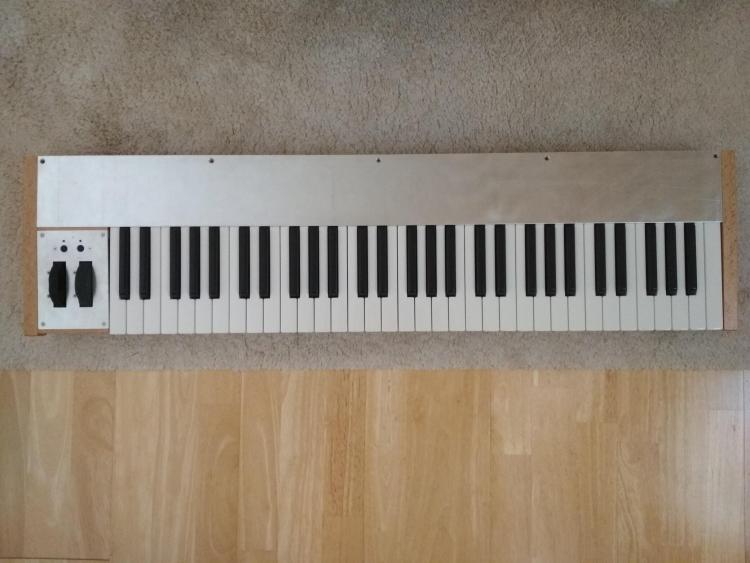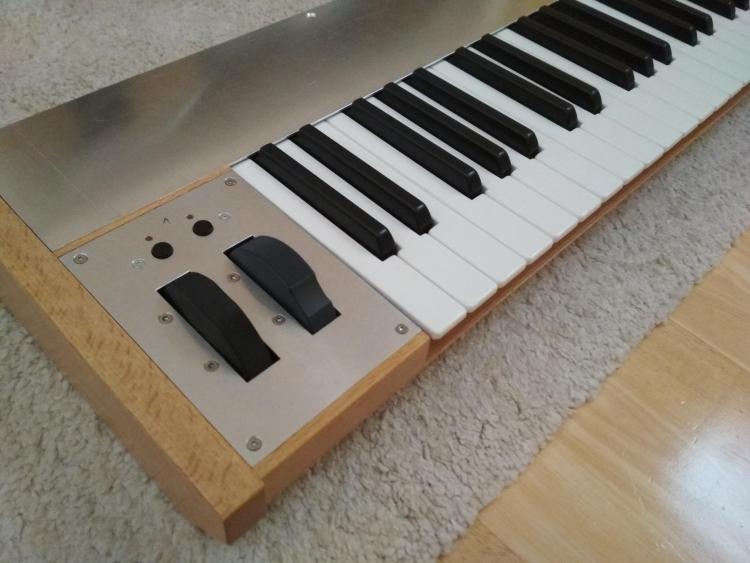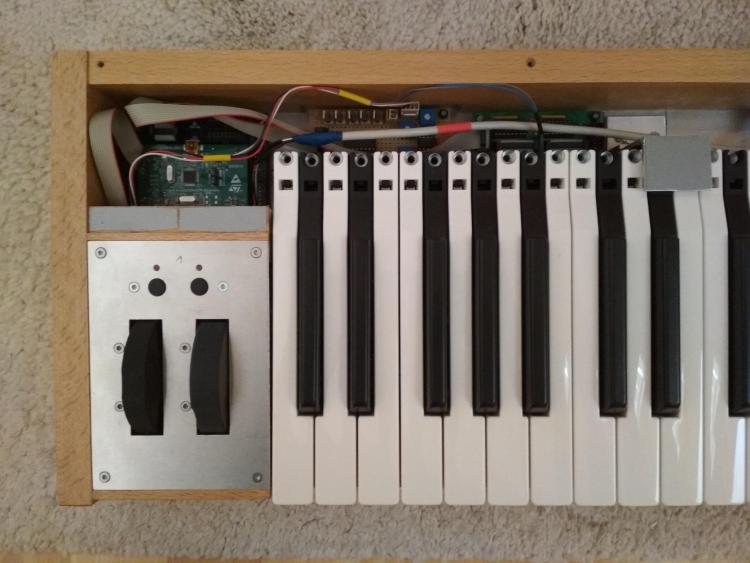Search the Community
Showing results for tags 'keyboard'.
-
Hi, I built two identical controller keyboards using CORE_STM32F4 running MIDIbox NG. They currently feature analog ins, two wheels and octave up/down buttons. It was very hard and time consuming to build these without a proper workshop (used mainly beech wood and aluminium). Issues: #1 One big problem i have is that the velocity resolution is very low. It looks like just 5-10 values are generated, nothing in between. It's too coarse for playing properly. #2 Another problem is that i get random pitch wheel values when in zero position. I wonder if there is kind of a plateau range around the zero position to mitigate that. Or maybe it's because of a faulty pot? Thanks for your help
-
Hi, I am new to MIDI and I have a question. I plan to "midify" a traditional church organ pedalboard by making the pedals hit the white keys of an M-Audio Keystation 61es keyboard. I would therefore need to assign the notes 036 to 067 (C1 to G3) in their natural order (C,C#,D...) to exclusively the white keys of the keyboard, such that pressing the C1 key would send 036 to the computer, pressing the D1 key would send 037 (C1#), pressing the E1 key would send 038 (D1), and so on. I would be glad for a hint for any software or hardware solution.
- 1 reply
-
- pedalboard
- keyboard
-
(and 2 more)
Tagged with:
-
Okay so I'm having a bit of trouble figuring out how to take the current keyboard range and on each successive press of a button, shift it down by one octave. It has to be relative, because I also want an increment button as well. I'm assuming it'd be something like: event_button id=1 kb_transpose= current_value + 12 event_button id=2 kb_transpose= current_value - 12 Sorry if this has been covered before, (I looked but maybe I didn't search for the right terms?). Thanks for any help!
- 3 replies
-
- midibox ng
- keyboard
-
(and 2 more)
Tagged with:
-
I heard about MIDIbox some time ago from a dear friend. Not realizing its potential at the time, it ended up somewhere in the back of my head. However, now that I am planning to build an analog(ish) synthesizer, I can start to see attraction of the system. My question is this: How much will the CORE_LPC17 board be able to process at a time? Here follows a list of functions: Scan a 49 key keyboard, using a six-bit polyphonic decoder. (Requires six Douts and one Din) Mix note events from the keyboard into the external MIDI stream. An internal clock, with tempo derived from either a pot or tapping. A basic arpeggiator with the following functions: Up, down, up-down, down-up, random, or order pressed modes. Run over 4 octaves. Semibreve, crotchet, quaver, semi-quaver, etc... based on clock input, from either the external input or the internal clock. Gate length (PW) controlled via pot. Output a CV, a gate, and clock pulse (to LFOs) Potentially a MIDI output, combining the data from the original MIDI stream, the keyboard, the internal clock (if being used), and the output from the arpeggiator on a separate channel. I think that is all for now. Shall write back if I remember something else... So, would the core board be able to process all of this simultaneously? Regards, Steve.





